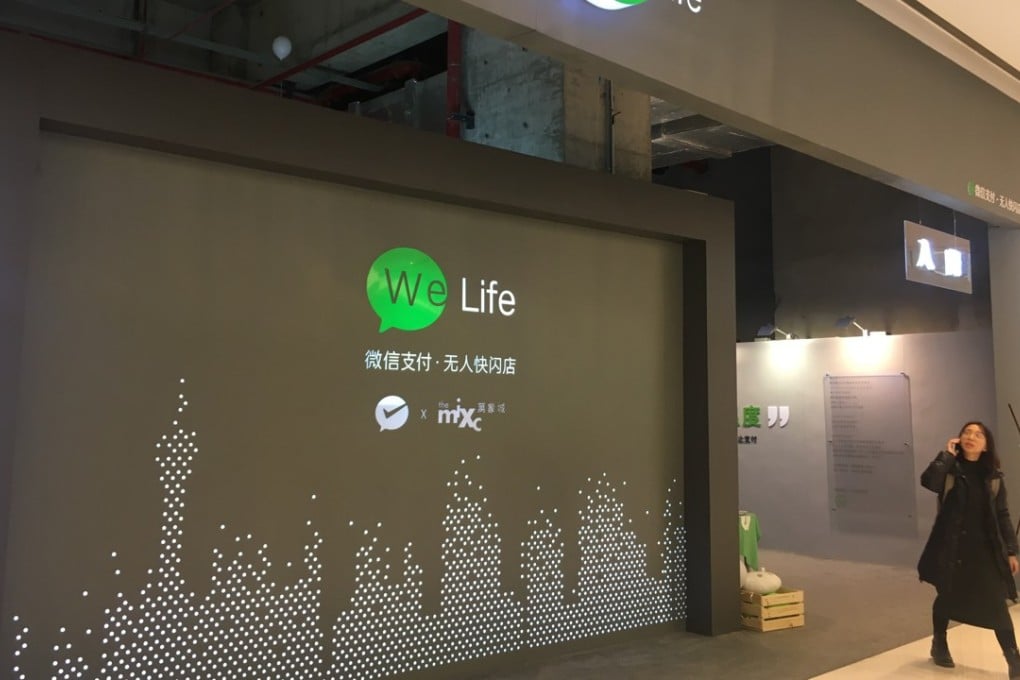Tencent beats Amazon to launch unmanned shop, but lags other Chinese tech rivals
The pop-up shop in Shanghai has pulled in 30,000 visitors in first two days of operation

Tencent Holdings has opened an unmanned pop-up store in Shanghai over the weekend which drew more than 30,000 visitors in its first two days of operation, beating Amazon in launching the much-hyped retail idea and catching up with other Chinese tech majors.
The most valuable Chinese tech company joined rivals Alibaba Group Holding, JD.com and Suning, as well as start-up BingoBox to test the water for the “grab-and-go” concept.
After nearly a year’s delay, Amazon Go is finally opening to the public this week in the US as the “no lines, no checkouts, no registers” model that could be a game-changer for the grocery and retail industry, CNBC reported.
The Tencent store, which sells chocolates, bottled water and juices, cookies, and coffee mugs, as well as WeChat merchandise, opened on January 20 in the MixC shopping mall in southwestern Minhang in Shanghai. It will run for 16 days until February 4.
“It’s quite popular especially in the afternoons during the weekends,” said Fele Wang, co-founder of EasyGo, a partner that supports the operation of the pop-up shop for WeChat Pay, the mobile payment services of Tencent.